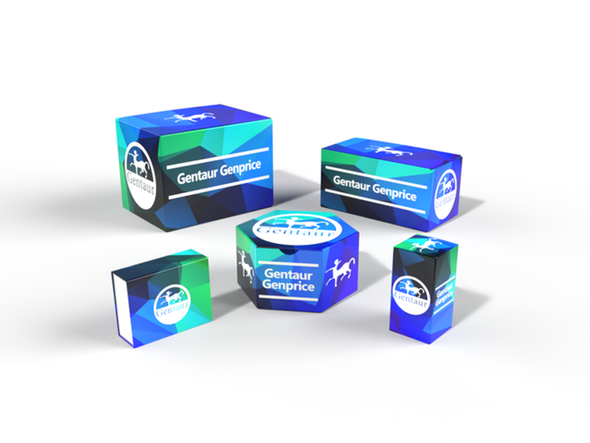Description
PRDX2 Antibody | 61-602 | Gentaur UK, US & Europe Distribution
Host: Rabbit
Reactivity: Human, Mouse
Homology: Predicted species reactivity based on immunogen sequence: Bovine, Hamster, Monkey, Rat
Immunogen: This PRDX2 antibody is generated from rabbits immunized with a KLH conjugated synthetic peptide between 169-198 amino acids from the C-terminal region of human PRDX2.
Research Area: Cancer, Cell Cycle, Obesity, Neuroscience, Signal Transduction
Tested Application: WB, IHC-P, IF
Application: For WB starting dilution is: 1:1000
For IF starting dilution is: 1:10~50
For IHC-P starting dilution is: 1:50~100
Specificiy: N/A
Positive Control 1: N/A
Positive Control 2: N/A
Positive Control 3: N/A
Positive Control 4: N/A
Positive Control 5: N/A
Positive Control 6: N/A
Molecular Weight: 22 kDa
Validation: N/A
Isoform: N/A
Purification: This antibody is prepared by Saturated Ammonium Sulfate (SAS) precipitation followed by dialysis
Clonality: Polyclonal
Clone: N/A
Isotype: Rabbit Ig
Conjugate: Unconjugated
Physical State: Liquid
Buffer: Supplied in PBS with 0.09% (W/V) sodium azide.
Concentration: batch dependent
Storage Condition: Store at 4˚C for three months and -20˚C, stable for up to one year. As with all antibodies care should be taken to avoid repeated freeze thaw cycles. Antibodies should not be exposed to prolonged high temperatures.
Alternate Name: Peroxiredoxin-2, Natural killer cell-enhancing factor B, NKEF-B, PRP, Thiol-specific antioxidant protein, TSA, Thioredoxin peroxidase 1, Thioredoxin-dependent peroxide reductase 1, PRDX2, NKEFB, TDPX1
User Note: Optimal dilutions for each application to be determined by the researcher.
BACKGROUND: PRDX2 is a member of the peroxiredoxin family of antioxidant enzymes, which reduce hydrogen peroxide and alkyl hydroperoxides. This protein may play an antioxidant protective role in cells, and may contribute to the antiviral activity of CD8 (+) T-cells. This protein may have a proliferative effect and play a role in cancer development or progression. The crystal structure of this protein has been resolved to 2.7 angstroms.




![PRDX2 Antibody (Center) [AMR09502G] PRDX2 Antibody (Center) [AMR09502G]](https://cdn11.bigcommerce.com/s-1rdwiq712m/images/stencil/590x590/products/57743/58047/gentaur-genprice__26005.1661610467__29809.1661628092__75433.1661676199__77988.1661684280__64362.1661692443__58389.1661854349.png?c=1)

